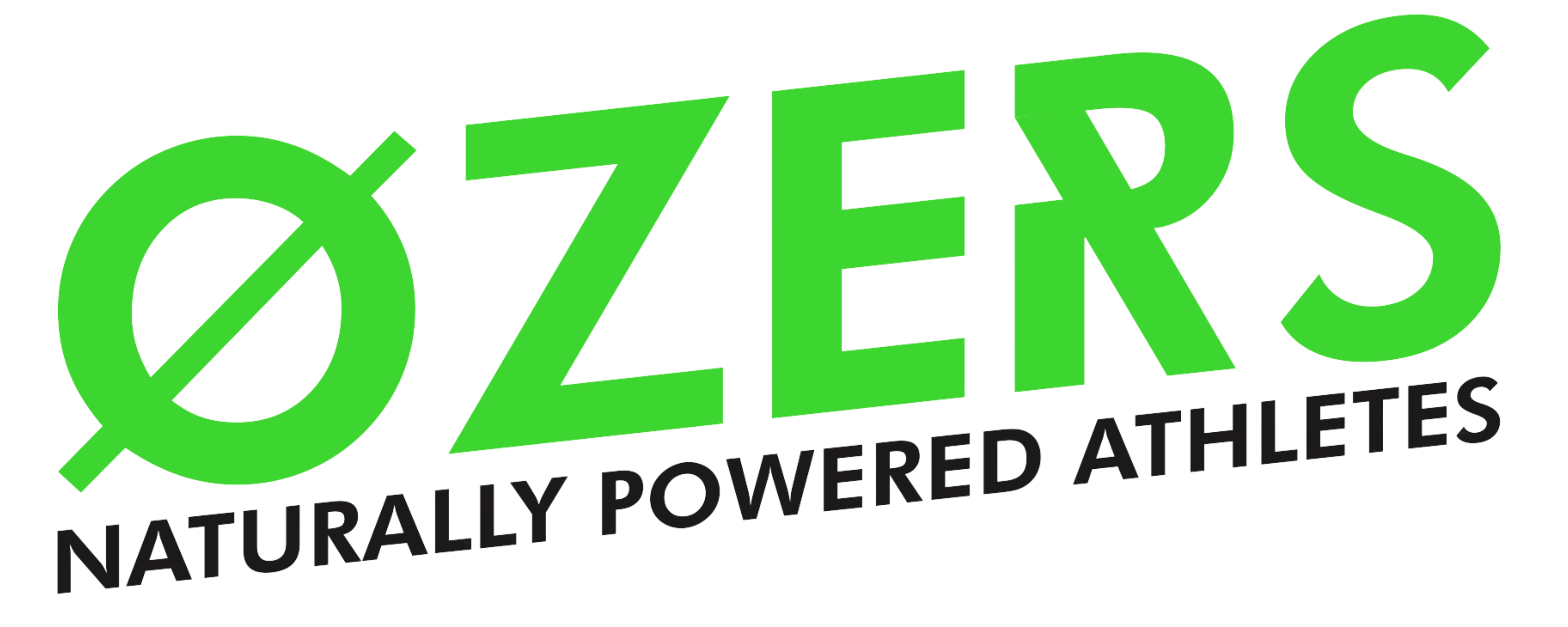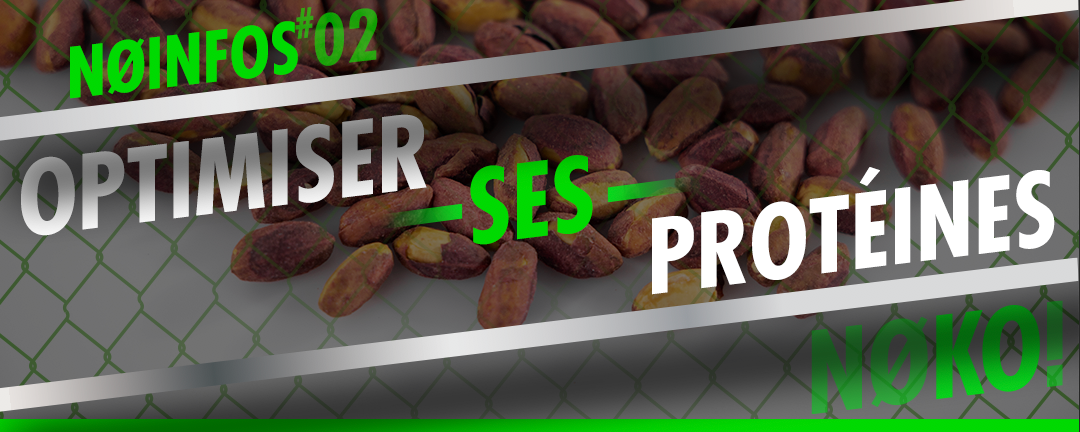Perform without protein Good lucke
One of the first pillars to master for a healthy and pro-performance diet: protein intake.
What are proteins?
Proteins are the building blocks of muscles. They are composed of nitrogenous amino acids. These acids bind together, and their positioning will determine a particular protein. There are 20 amino acids, 9 of which are essential, which must be provided by food because they are not synthesized by our body. While eggs, dairy, and meat provide these eight essentials, these can also be obtained through a plant-based diet. In the body, proteins have many functions: they are used to build and repair the tissues of certain muscles, to manufacture enzymes, hormones and other important chemical substances for the body, or even as essential components of the human body, for example in the nails or hair (1).
Muscle Protein Synthesis (MPS)
Muscle is a highly adaptive organ capable of changing size and/or function. This is due to the fact that muscle tissue is constantly renewing itself. If muscle mass remains constant, then muscle protein synthesis (MPS) equals protein breakdown (DP). This renewal allows muscle tissue to replace damaged proteins with new proteins or to modify the composition of muscle proteins to adapt to damage caused by physical exercise for example. An imbalance in the rates of protein synthesis and breakdown in skeletal muscle will lead to a net gain in muscle mass if MPS is greater than protein breakdown (2).
- MPS > DP muscle grows
- MPS < DP muscle shrinks
Thus, a single exercise session boosts MPS levels. However, the net balance of muscle proteins remains negative in the absence of food intake! (3) It is protein ingestion during the acute post-exercise recovery phase that results in a net gain, by stimulating MPS and simultaneously inhibiting DP levels (4). For high-quality recovery, try the BCAA-rich post-training product by NØKO!
Therefore, protein ingestion increases MPS levels and thereby facilitates the adaptive response of skeletal muscles to prolonged training. Various factors modulating the response of MPS to food have been identified: the amount, type and timing of protein ingestion (2).
How to maximize your MPS

Optimize protein intake
Pre- and post-workout protein consumption promotes greater muscle protein synthesis. It is recommended to have a protein intake of 0.4 g/kg body weight before training, then a protein intake of 0.6 g/kg body weight after training. However, the main thing is not to let more than 6 hours pass between the pre-workout meal and the post-workout meal.
It is also recommended to consume it 1 to 3 hours before going to bed (this would stimulate the MPS during the night and would have a positive effect on recovery) (5). Over the entire day, being at a total protein of 1.6 g/kg of body weight is, according to research, the most beneficial (6).
Optimize protein quality
If the amount of protein you consume is important, the amino acids it contains are all the more so. This is the only thing that matters for your precious muscle mass. Indeed, you have to pay close attention to the profile of your protein sources to provide your body with a full range of amino acids. Certain amino acids such as leucine or lysine are not present in sufficient quantities in all protein foods. However, they are particularly important for athletes. This is why vegan diets must pay particular attention to this: they are generally recommended to increase their intake of lysine, an amino acid important for energy metabolism and for bone health, of which they are often deficient (this aspect will be detailed soon in a new article). For example, an optimal blend of pea protein and rice protein provides a high quality vegetable protein intake. You can also consume this protein blend more simply with NØKO products. Their composition has been developed in order to best meet the nutritional needs of athletes. These are vegan supplements made from premium plant-based proteins that are easy to digest and enriched with BCAAs and glycine. NØKO products will be your main ally during your workouts.Optimize leucine intake
Muscle protein synthesis is stimulated by BCAAs (7) and more particularly by leucine, which is a substrate of MPS and is involved in signaling (8). Effective stimulation of MPS is promoted by a leucine intake of around 3g per day (9). Once this threshold is exceeded, the MPS can be optimized by being careful not to exceed the threshold of ~39 g/day which could pose a health risk (10). This contribution can be made using spirulina, for example, which is contained in NØKO products and which contains 8.5% leucine (11).
Article written by Manon Moussay, Alexia Oechsel, Laurianne Trabut Collaboration NØKO! x Sorbonne University
Sources
(1) Proteins:www.anses.fr/fr/content/les-prot%C3%A9ines(2) The Muscle Protein Synthetic Response to Meal Ingestion Following Resistance-Type Exercise:doi-org.accesdistant.sorbonne-universite.fr/10.1007/s40279-019-01053-5
(3) Mixed muscle protein synthesis and breakdown after resistance exercise in humans:pubmed-ncbi-nlm-nih-gov.accesdistant.sorbonne-universite.fr/9252485/
(4) Postexercise net protein synthesis in human muscle from orally administered amino acids:pubmed-ncbi-nlm-nih-gov.accesdistant.sorbonne-universite.fr/10198297/
(5) Latency and duration of stimulation of human muscle protein synthesis during continuous infusion of amino acids:pubmed.ncbi.nlm.nih.gov/11306673/
(6) A systematic review, meta-analysis and meta-regression of the effect of protein supplementation on resistance training-induced gains in muscle mass and strength in healthy adults:pubmed.ncbi.nlm.nih.gov/28698222/
(7) Branched-Chain Amino Acid Ingestion Stimulates Muscle Myofibrillar Protein Synthesis following Resistance Exercise in Humans:pubmed.ncbi.nlm.nih.gov/28638350/
(8) The leucine content of a complete meal directs peak activation but not duration of skeletal muscle protein synthesis and mammalian target of rapamycin signaling in rats:pubmed.ncbi.nlm.nih.gov/19403715/
(9) The Skeletal Muscle Anabolic Response to Plant- versus Animal-Based Protein Consumption:pubmed-ncbi-nlm-nih-gov.accesdistant.sorbonne-universite.fr/26224750/
(10) Determination of the Tolerable Upper Intake Level of Leucine in Adult Men:academic.oup.com/jn/article/142/12/2220S/4630835
(11) The Skeletal Muscle Anabolic Response to Plant- versus Animal-Based Protein Consumption:academic-oup-com.accesdistant.sorbonne-universite.fr/jn/article/145/9/1981/4585688



